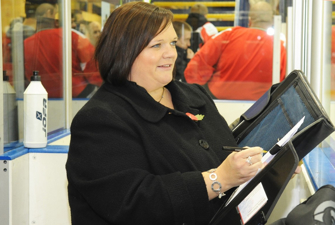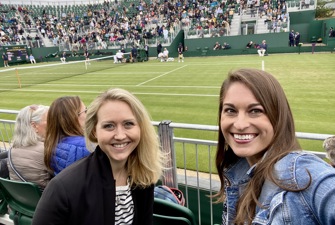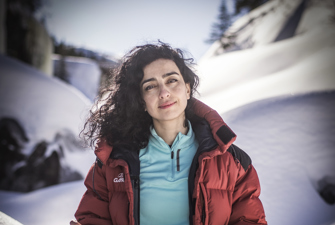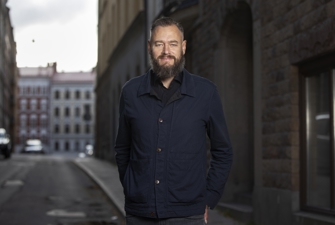Meet the speakers: "Ideally, safeguarding should be integrated into all phases of mega sporting events"
Claudia Villa is the safeguarding advisor for the Centre for Sport & Human Rights and an international safeguarding specialist who works closely with international federations, national governing bodies and organisers of major sports events. At Play the Game 2024 she will explain why safeguarding policies are important.
Can you tell us what you do?
My background is in child safeguarding, humanitarian and charity work but more recently I’ve been working with sports organisations. I provide advice on policies, procedures and best practices to put safeguarding systems in place that prevent abuse from occurring.
What do you mean by safeguarding?
Safeguarding refers to all actions, practices, policies and procedures that an organisation implements to protect all individuals; and to prevent and respond to harm and abuse.
At mega sporting events, it involves exactly that, safeguarding measures must be implemented to protect all individuals involved, especially athletes.
Safeguarding should be present in all phases of an event lifecycle not just at game time. Safeguarding measures must be part of the conceptualisation phase and be integrated throughout all other phases.
Safeguarding must be part of the whole process and embedded in all operations and functional areas. At mega sporting events, safeguarding must strive to create a safe environment for all involved in the sports ecosystem.
Measures could include vetting of staff and volunteers, effective reporting and response systems, clear policies, procedures and code of conduct, monitoring the time athletes are required to train, their access to water, medical and mental health support and their training and competition environments. They could also include screening comments on social media to prevent online abuse.
There’s a need for safe spaces or places of trust. These don’t necessarily need to be physical spaces. Some participants want to come to a physical space that is marked and designated, while others may simply need a way of contacting people they trust. There needs to be a culture of trust; and a positive safeguarding culture.
Participants need to be told how to raise a concern, what will happen after they do so, who will respond and how long it will take to resolve.
Is there a greater need for safeguarding today?
There has always been a need for it, but today there is more awareness. We need to thank the athletes, the investigative journalists, the civil society organisations, all those who have come forward to raise awareness. They have been a catalyst for change.
Is social media of particular concern?
Of course, online abuse is a relatively modern phenomenon that didn’t always exist.
Ideally, everyone who takes part in a mega-sporting event should subscribe to a social media code of conduct. We know that comments from outsiders will not be subject to this, but we aim to work with social media platforms to reduce abusive language that can impact participants’ well-being.
Some coaches have a style that entails strong criticism of athletes in the dressing room following a defeat. Fans can also be very critical on social media. Should athletes always be shielded from this?
Everyone needs to be aware of the rights of others. Clubs and sports organisations need to have a code of conduct in place, co-designed and co-created with athletes themselves, which defines what behavior is expected and what kind of behavior is seen as unacceptable. Such considerations should be included in people’s contracts.
People who post on social media also need to take personal accountability for their actions. They need to be aware of the potential impact of their comments. There’s still a lot of work that needs to be done in this area.
Are safeguarding measures at mega events improving?
Definitely. Safeguarding is quite a recent concept in sport but we are now seeing more efforts to implement it.
We’re seeing more investments at mega-events. The IOC has published a toolkit on safeguarding athletes from harassment and abuse. FIFA has invested in capacity building, including its FIFA Guardians Safeguarding course, and I have been working with the Centre for Sport and Human Rights von Generation 2026, a programme that aims to raise awareness and improve child safeguarding measures in host Cities ahead of the FIFA World Cup 2026.
I have also contributed to discussions on the inclusion of safeguarding and child’s rights in the ISO 20121 on sustainable events, which demonstrates its growing importance. There is more of a willingness to integrate safeguarding policies into events today. Safeguarding should be a non-negotiable must-have.
In an ideal world safeguarding should be integrated into all sporting events, Everybody has the right to feel safe and be safe, regardless of whether they’re competing at club level or in international elite competition. Ultimately it’s a human rights issue. There’s definitely more work to be done.
Claudia Villa is an International safeguarding specialist and safeguarding advisor for the Centre for Sport & Human Rights.
She will take part in the session 'Safeguarding athletes or protecting the brand' on Wednesday 7 February.
Play the Game 2024 will take place in Trondheim, Norway, on 4-7 February 2024.



